“Egypt is not a country we live in, but a country that lives within us.”
This is one of the most popular quotes attributed to Pope Shenouda III, the 117th Pope of Alexandria and Patriarch of the See of St. Mark. A courageous leader, a talented poet, a gifted preacher, a passionate teacher, a talented author, and a patriot in his own regard, Pope Shenouda was known among Egyptians as a man of the people.
On what was going to be his 99th birthday, we shed light on a different side to his life that showcases how he was more than just a religious leader.
Born into a Coptic family in 1923, Nazeer Gayed (his birth name), was a brother to eight siblings. In 1947, he received the Bachelor’s Degree of History from Cairo University. Following which, he obtained a second Bachelor’s degree in Theology from the Coptic Orthodox Theological Seminary.
After graduation and completion of his military service, Gayed took on teaching as a career. He began by teaching English and History subjects, then resigned to become a full-time lecturer at Helwan’s Monastic College in 1953.
The road to monasticism was his next stop, and a natural consequence of his desire to get closer to God. “I found in monasticism, a life of complete freedom and clarification,” he once said.
In the Coptic Orthodox church, anyone who joins the monastery is given a new name of a saint, symbolizing the death of his old self and the rebirth of a new person. One year after joining the monastery, he was ordained as Father Antonios. In 1962, Pope Kyrillos VI, the 116th Pope of the Coptic Orthodox Church, ordained Father Antonios as Bishop Shenouda, the first bishop for Christian Education. In 1971, Pope Shenouda was enthroned as Pope of Alexandria and Patriarch of the See of Saint Mark.
Alongside his extensive educational and teaching background, Pope Shenouda was a prolific author, having published over 100 books in literature and poetry.
Some of his works include ‘Contemplations on the Ten Commandments’ (1993), ‘The Life of Repentance and Purity’ (1990), ‘Life of Faith’ (1989), and ‘Comparative Theology’ (1988). His publications were lauded for being deep yet understandable to the general public.
Representing the largest Christian minority in Egypt, he was vocal about issues concerning not only the church, but the state as a whole. Though he did have a turbulent time with some political leaders, namely the late Egyptian President Anwar El Sadat, who exiled him to the Monastery of Saint Bishoy in Wadi El Natrun. Otherwise, he had an amicable relationship with the late Egyptian president Hosni Mubarak.
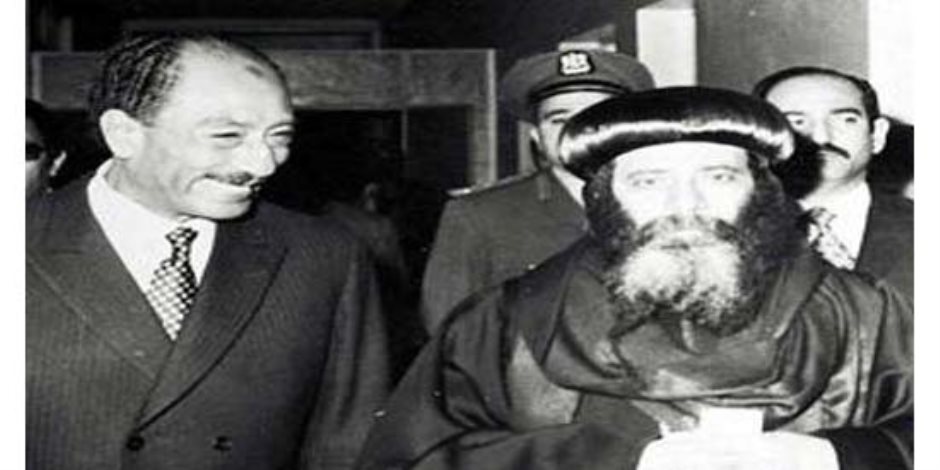
Photo via Sout Al Umma
Despite this, however, he was a vocal supporter of the 25 January revolution and its protestors; he believed in free and fair elections and commended Egyptian youth who “shed their blood for the country”.
Vocal in his criticism of the Israeili occupation, he banned Copts from pilgrimage to holy sites in Israel with his popular quote that Muslims and Christians should enter the Holy Land “arm-in-arm”. Although not all Copts were pleased with his decision, it was hailed as admirable by Egypt’s predominantly Muslim population.
As Egypt is well-known for its bouts of religious conflicts, he was keen on maintaining good relations between the Muslims and Christians of Egypt. Dubbed as the “Pope of the Arabs”, his support to Palestinians granted him the love and respect of Muslims and Christians alike across the Arab region.
One of his foremost efforts was attempting to achieve Christian unity, regardless of national borders; he was the first Coptic pope to visit Rome in over 1,500 years, meeting with Roman Catholic Pope Paul VI to improve relations between both churches.
Moreover, Pope Shenouda worked on the expansion of the Coptic Orthodox Church globally, and increased women’s service activities within the church during his papacy.
From efforts towards Christianity unity, to papal visits and efforts of national unity, Pope Shenouda’s papacy was remarkable in its desire to promote peace in the Middle East. This included meetings with former United States Presidents George W. Bush and Jimmy Carter.
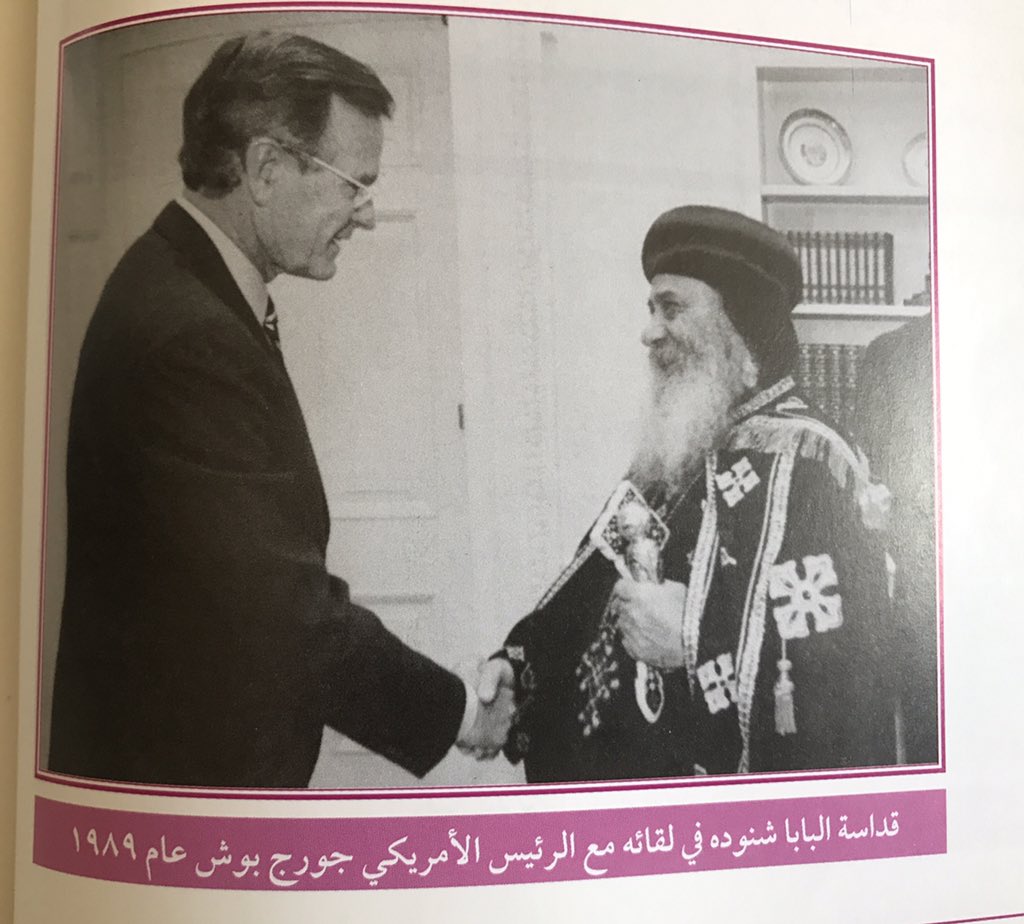
Photo via Twitter
In 2000, Pope Shenouda received the UNESCO Prize for Dialogue and Religious Tolerance, the United Nations Award for Religious Tolerance, and Al-Gaddafi International Award for Human Rights in 2003, in addition to honorary doctorate certificates from four universities.
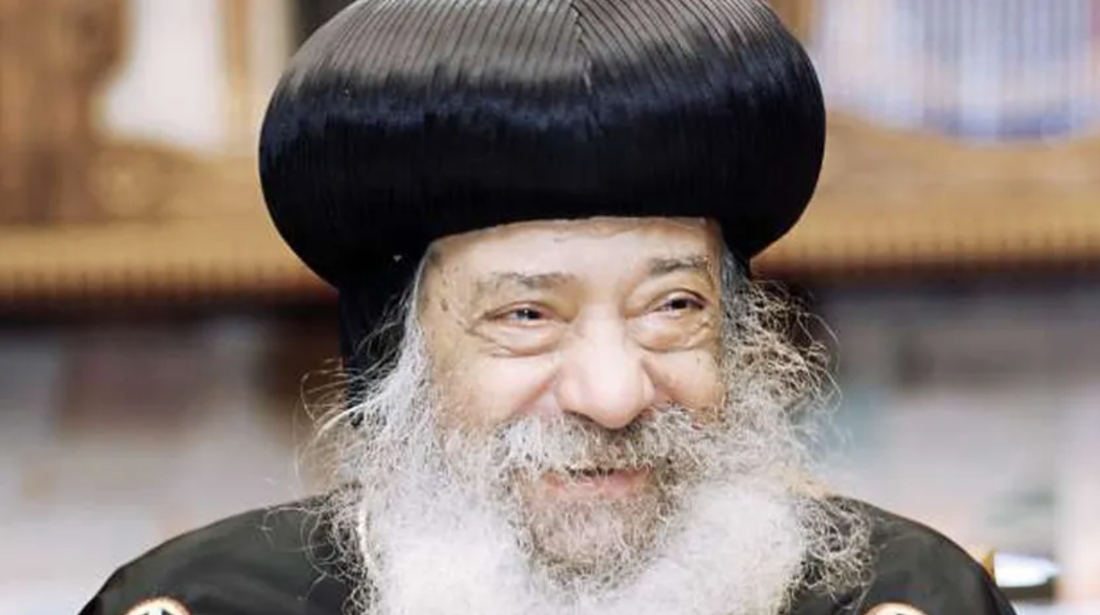
As Egyptians are called “sha’b ebn nokta” (people who like to joke), he was also known for his unparalleled sense of humor. Most of his sermons included jokes or light stories with profound morals. To this day, videos of his sermons are shared in WhatsApp chats of Christians, both youngsters and adults, while videos of his light, funny jokes and stories from televised interviews, are shared among Muslims.
On 17 March, 2012, state television announced the passing of Pope Shenouda III at the age of 88 years old.
Subscribe to the Egyptian Streets’ weekly newsletter! Catch up on the latest news, arts & culture headlines, exclusive features and more stories that matter, delivered straight to your inbox by clicking here.

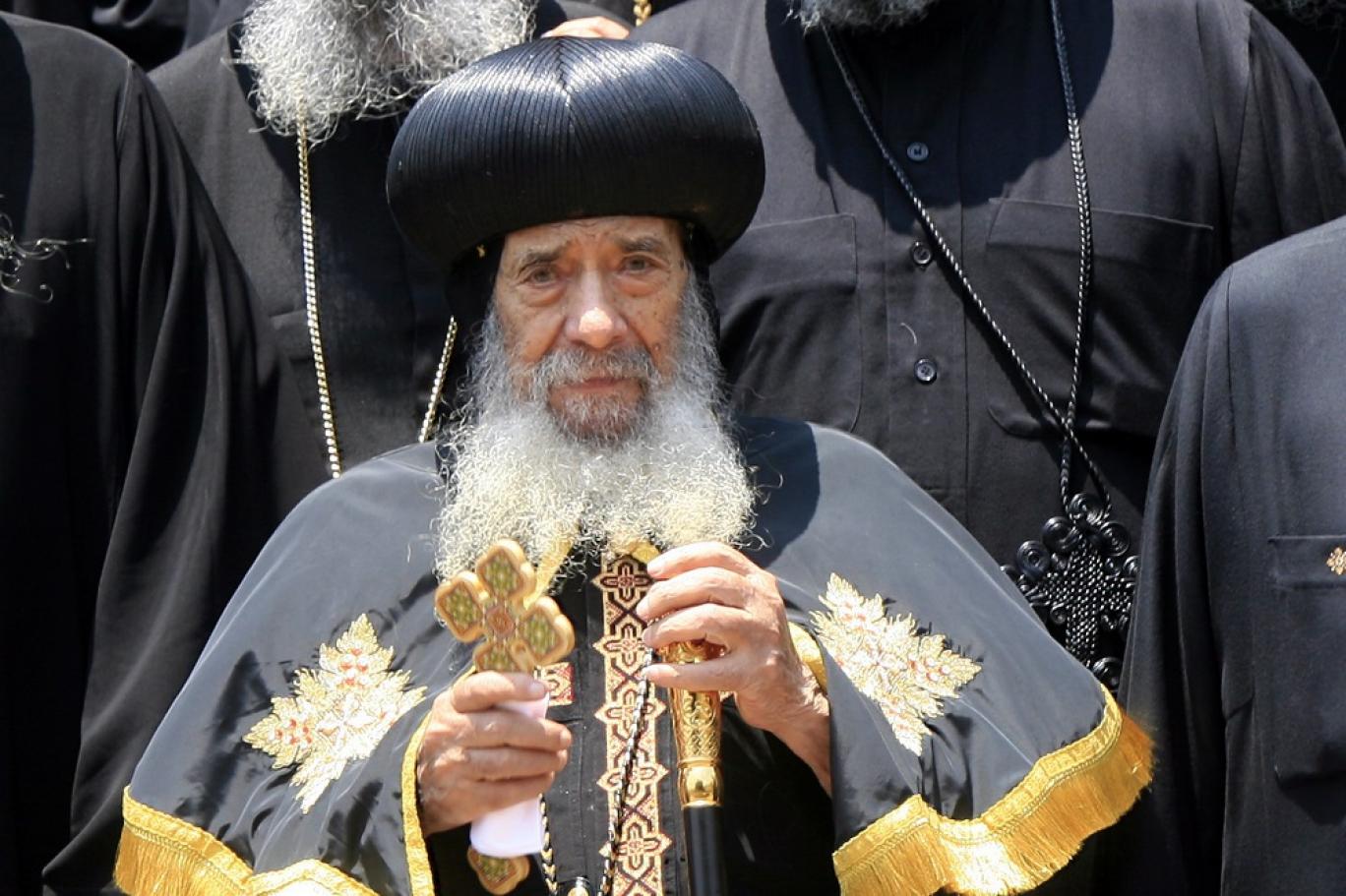


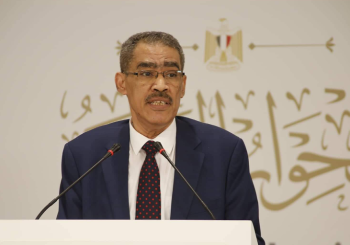
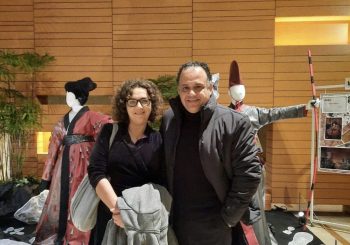
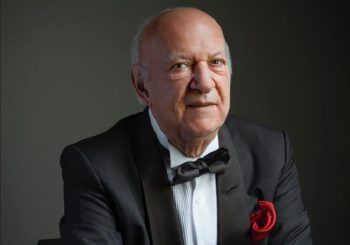
Comments (3)
[…] أكثر من مجرد زعيم ديني: حياة البابا شنودة الثالث […]
[…] More Than Just a Religious Leader: The Life of Pope Shenouda III […]